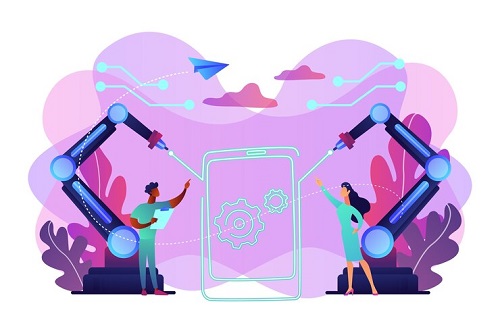Introduction: The Dawn of Generative AI and Its Ethical Implications
Generative AI, a rapidly evolving field, has unleashed immense potential, revolutionizing industries and reshaping creative processes. From generating captivating artworks to composing mesmerizing music, generative AI’s capabilities continue to astonish. However, as this technology becomes more deeply integrated into our lives, it is crucial to contemplate its ethical implications. This blog post delves into three primary ethical concerns surrounding generative AI and explores proactive measures to ensure its responsible and beneficial deployment.
1. Bias in Generative AI: Unmasking Unconscious Prejudices
Generative AI is not immune to the biases inherent in the data on which it is trained. These biases can manifest in various ways, leading to unfair or discriminatory results. For example, if a generative AI system is trained on a dataset that contains gender or racial biases, it may perpetuate these biases in its outputs. Ensuring diversity and inclusivity in training data sets, continuously monitoring and correcting biases, and incorporating fairness constraints into generative AI models are some proactive measures to mitigate bias.
2. The Looming Threat to Employment: Displacement of Human Workers
The automation of tasks by generative AI raises legitimate concerns about job displacement and the potential erosion of human employment. As generative AI becomes increasingly sophisticated, its ability to perform tasks that were once exclusively human may lead to the displacement of workers across various industries. To address this challenge, policymakers and stakeholders must prioritize upskilling and reskilling initiatives to equip individuals with skills and knowledge relevant to a future where generative AI plays a prominent role. Additionally, exploring the creation of new jobs and occupations that leverage generative AI’s strengths could pave the way for a harmonious coexistence between humans and AI.
3. Ethical Guidelines for Responsible Generative AI Development and Deployment
Establishing ethical guidelines is paramount to ensure the responsible development and deployment of generative AI. These guidelines should encompass principles such as transparency, accountability, fairness, and respect for privacy. Key stakeholders, including researchers, developers, policymakers, and industry leaders, must collaborate to formulate comprehensive frameworks that delineate best practices and ethical standards for generative AI. Governments can play a crucial role by implementing regulations and policies that promote responsible AI development and usage, fostering trust and confidence among the public.
Conclusion: Striving for Responsible and Ethical Generative AI Adoption
Generative AI, while offering immense potential, also presents ethical challenges that require thoughtful consideration and proactive action. By addressing concerns related to bias, job displacement, and the need for ethical guidelines, we can harness the benefits of generative AI while safeguarding human values and societal well-being. Collaborative efforts among stakeholders, including researchers, industry leaders, policymakers, and the public, are essential to shape a future where generative AI serves humanity in a responsible and ethical manner.



